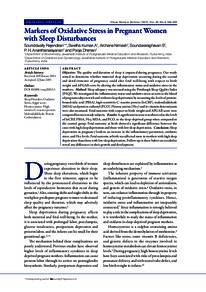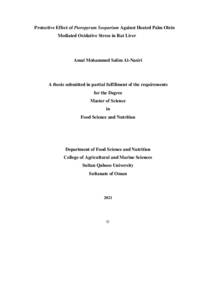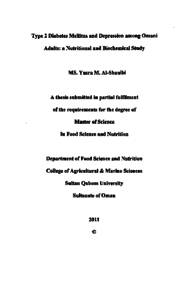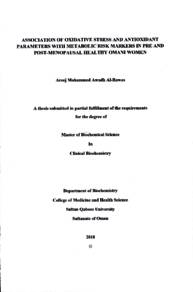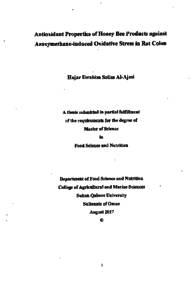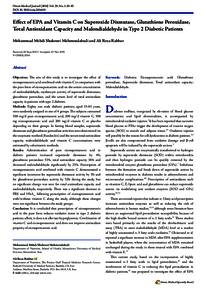وثيقة
Markers of oxidative stress in pregnant women with sleep disturbances.
المعرف
DOI 10.5001/omj.2015.53
المساهمون
Kumari, Swetha A., مؤلف
Nimesh, Archana., مؤلف
Soundararaghavan, S., مؤلف
Ananthanarayanan, P. H., مؤلف
الناشر
Oman Medical Specialty Board.
ميلادي
2015-07
اللغة
الأنجليزية
الموضوع
الملخص الإنجليزي
Objective: The quality and duration of sleep is impaired during pregnancy. Our study
aimed to determine whether maternal sleep deprivation occurring during the second
and third trimester of pregnancy could alter fetal well-being with respect to birth
weight and APGAR score by altering the inflammatory status and oxidative stress in the
mothers. Method: Sleep adequacy was assessed using the Pittsburgh Sleep Quality Index
(PSQI). We investigated the inflammatory status and oxidative stress at term in the blood
of pregnant subjects with and without sleep deprivation by measuring the levels of protein bound sialic acid (PBSA), high-sensitivity C-reactive protein (hsCRP), malondialdehyde
(MDA) and protein carbonyl (PCO). Homocysteine (Hcy) and its vitamin determinants
were also measured. Fetal outcome with respect to birth weight and APGAR score were
compared between study subjects. Results: A significant increase was observed in the levels
of hsCRP, PBSA, Hcy, MDA, and PCO, in the sleep-deprived group when compared to
the control group. Fetal outcome at birth showed a significant difference between the
cases with high sleep deprivation and those with low sleep deprivation. Conclusion: Sleep
deprivation in pregnancy leads to an increase in the inflammatory parameters, oxidative
stress, and Hcy levels. Fetal outcome at birth was affected more in mothers with high sleep
deprivation than those with low sleep deprivation. Follow-up in these babies are needed to
reveal any differences in their growth and development.
المجموعة
URL المصدر
zcustom_txt_2
Rajendiran, Soundravally, Kumari, Swetha A., Nimesh, Archana, Soundararaghavan, S., Ananthanarayanan, P. H., & Dhiman, Pooja (2015). Markers of oxidative stress in pregnant women with sleep disturbances. Oman Medical Journal, 30 (4), 264-269.
قالب العنصر
مقالات الدوريات

